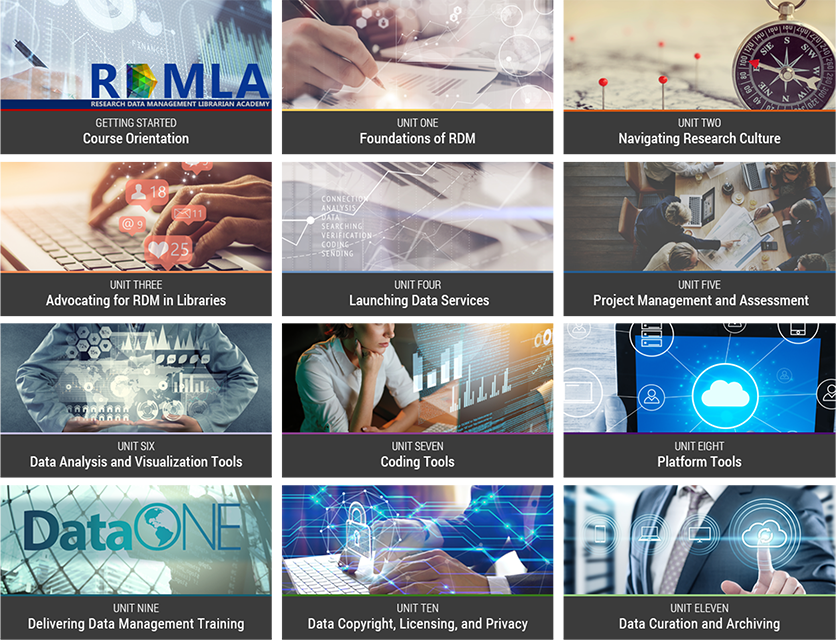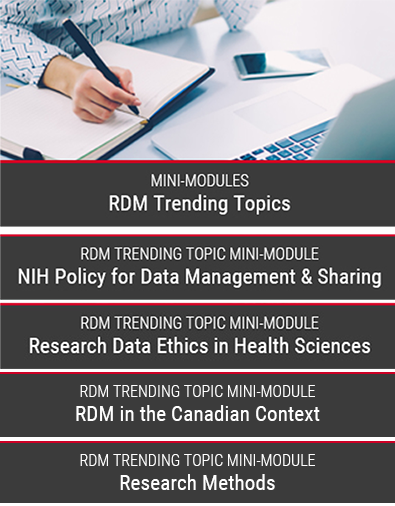Curriculum
The RDMLA curriculum focuses on the essential knowledge and skills needed to collaborate effectively with researchers on data management. Librarians working in academic settings who complete this program will have increased capacity to address the growing research data management needs of their higher learning institutions and to train faculty and researchers on best practices.

Currently, the course offers eleven units. Each unit features video lectures, exercises, assessments and additional resources.
- Unit 1: Foundations of Research Data Management (RDM)
- Unit 2: Navigating Research Data Culture
- Unit 3: Advocating and Marketing the Value of RDM in Libraries
- Unit 4: Launching Data Services in Libraries
- Unit 5: Project Management and Assessment
- Unit 6: Overview of Data Analysis and Visualization Tools
- Unit 7: Overview of Coding Tools
- Unit 8: Overview of Platform Tools
- Unit 9: Delivering Data Management Training: a Guide to DataONE Resources
- Unit 10: Research Data Copyright, Licensing, and Privacy
- Unit 11: Data Curation and Archiving

In July 2021, the RDMLA began to offer RDM trending topics mini-modules. Mini-Modules feature short video lectures with corresponding open-source resources that examine subject areas and emerging topics of research data management.
Mini-modules are different from their full unit counterparts in that they only consist of an approximately one-hour long video lecture on specific topics and do not typically include the learning activities, tests, case studies, or completion certification that regular units offer.
- NIH Policy for Data Management and Sharing
- Research Data Ethics in Health Sciences
- RDM in the Canadian Context
- Research Methods
